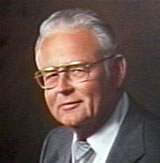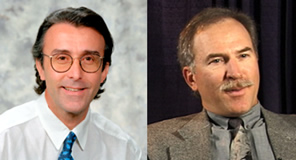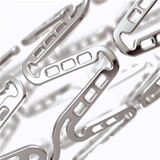|
March 26, 2009 -- As cardiologists are arriving in Orlando for the beginning of this weekend's 58th Annual Scientific Sessions of the American College of Cardiology, just a few hours away, Cordis Corporation will be celebrating its 50th anniversary as a manufacturer of innovative medical devices. From its humble beginnings in a garage in Miami, Florida, Cordis has grown into a global organization with well over half of its $3.1 billion in 2008 sales coming from outside the U.S. The company’s products now touch an estimated one million patients every year. “Our vision at Cordis is to transform cardiovascular care, a field in which incredible progress has been made, but one in which so much more remains to be done,” said Seth Fischer, Worldwide Franchise Chairman, Cordis Corporation. “We are grateful to the physicians and patients who have placed their trust in us during the past 50 years. Our legacy of success gives us confidence in our ability to continue delivering innovative new solutions that save lives and improve the quality of life for people around the world.” “I am so proud of how far Cordis has come over the years,” said William P. Murphy, Jr., M.D., the company founder. “I look forward to seeing Cordis continue to innovate on behalf of patients and physicians around the world.” Humble Origins, Numerous ‘Firsts’
Today, Biosense Webster is the world’s leading provider of innovative electrophysiology solutions for the treatment of heart rhythm disorders and is responsible for several “firsts” of its own, including the world’s first steerable catheter and ablation catheter, as well as the first mapping system offering electrophysiologists access to 3-D, real-time, color-coded views into the heart’s electrical activity.
In 2003, the FDA approved the CYPHER® Sirolimus-eluting Coronary Stent, the first combination drug-device product intended to help reduce restenosis, or “reclogging,” of a treated coronary artery. The American Heart Association named the CYPHER® Stent one of the top 10 medical advancements of that year. A variety of clinical studies have demonstrated the clinical benefits and safety profile of the CYPHER® Stent. For example, SIRIUS, the largest, most comprehensive study ever conducted to evaluate the performance of a new stent, showed that patients treated with the CYPHER® Stent fared significantly better than patients treated with a bare-metal stent. These benefits have been shown to be sustained out to six years.By early 2006, two million patients worldwide had received the CYPHER® Stent and, in 2008, the three-million-patient mark was reached, a milestone unmatched by any other drug-eluting stent at that time.
Cardiovascular disease is more than just a disease of the heart. In fact, about 40% of those with cardiovascular disease suffer from peripheral vascular disease, which is a narrowing of the vessels that carry blood to the brain, legs, arms and kidneys. Cordis has been a pioneer in this field as well. The company’s PALMAZ® Balloon-Expandable Stent, for example, was the first stent to receive FDA approval for use in patients with bile duct obstructions (1990), for iliac artery use (1991), and for renal artery use (2002). Cordis was also the first company to introduce in the U.S. a retrievable vena cava filter, which is used to prevent a blood clot from potentially travelling to the lungs. Cordis also has been a pioneer in the field of carotid artery stenting (CAS), a procedure that places a stent in the carotid artery to increase blood flow in areas blocked by plaque. Committed to Education In 2006, the company established the CORDIS® CARDIAC & VASCULAR INSTITUTE(SM) which provides physicians and other health care providers with educational, clinical, and product training resources designed to help advance the understanding and treatment of cardiac and vascular conditions to improve patient outcomes. CCVI conducts educational programs for thousands of health care practitioners annually through both live presentation and web-based education programs. CCVI operates the largest network of cardiovascular procedure simulators in the world for healthcare provider training with 150 systems in 10 different countries. Continued Innovation Cordis’s proud tradition of innovation continues to this day. In 2008, for example, the CYPHER® SELECT™ Plus Sirolimus-eluting Coronary Stent received CE Mark approval in Europe for the treatment of heart attacks, while a major new study showed that Percutaneous Coronary Intervention (PCI) with the CYPHER® Stent is comparable to bypass surgery in key safety measures in certain patient sub-groups, a result that no other stent has demonstrated. In February of this year, the FDA granted marketing approval to Biosense Webster’s NAVISTAR® THERMOCOOL® Catheter for the treatment of drug refractory recurrent symptomatic paroxysmal atrial fibrillation, when used with compatible three-dimensional electroanatomic mapping systems. AFib, a highly prevalent heart rhythm disorder, is one of the most common causes of stroke. It is the first and only catheter approved in the U.S. for this indication. From its modest beginnings, Cordis Corporation has become a worldwide leader in the development and manufacture of interventional vascular technology. The people of Cordis very much look forward to carrying on the company’s long-standing tradition of delivering innovative solutions that save lives and improve the quality of life of people suffering from cardiovascular disease. About Cordis Corporation For 50 years, Cordis Corporation, a Johnson & Johnson company, has been a recognized worldwide leader in the development and manufacture of interventional vascular technology. Through the company's innovation, research and development, Cordis partners with interventional cardiologists worldwide to treat millions of patients who suffer from vascular disease. *Cordis Corporation has entered into an
exclusive worldwide license with Wyeth for the localized delivery
of sirolimus in certain fields of use, including delivery
via vascular stenting. Sirolimus, the active drug released for the stent, is
marketed by Wyeth Pharmaceuticals, a division of Wyeth, under the name Rapamune®.
Rapamune is a trademark of Wyeth Pharmaceuticals. Source: Cordis Corporation with additional reporting by Burt Cohen, March 26, 2009
|



